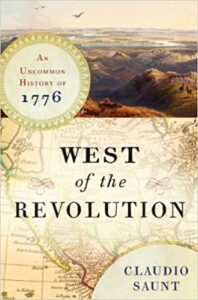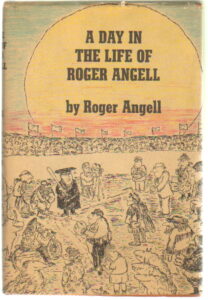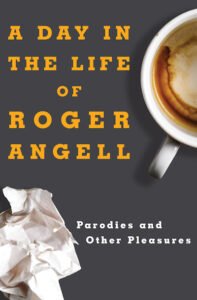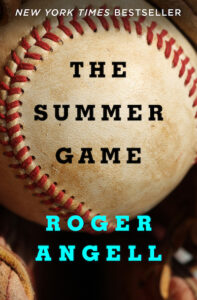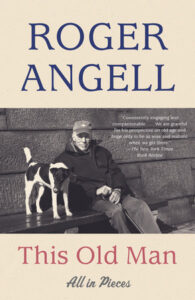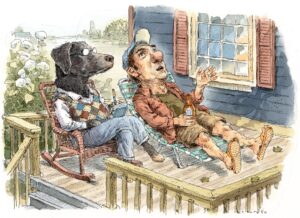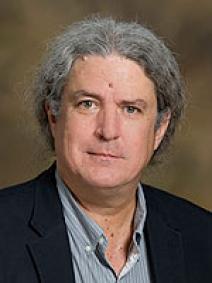Unworthy Republic: The Dispossession of Native Americans and the Road to Indian Territory by Claudio Saunt
March 18, 2021 by David
Filed under Non-Fiction, WritersCast
 Unworthy Republic: The Dispossession of Native Americans and the Road to Indian Territory – Claudio Saunt – 97800393541564 – paperback – W.W. Norton – 416 pages – $26.95 – February 23, 2021 – ebook versions available at lower prices
Unworthy Republic: The Dispossession of Native Americans and the Road to Indian Territory – Claudio Saunt – 97800393541564 – paperback – W.W. Norton – 416 pages – $26.95 – February 23, 2021 – ebook versions available at lower prices
This is a book that should be required reading for all Americans. Even those of us who think we know the story of the Trail of Tears and other important efforts by our white antecedents to eliminate Indians from the eastern United States will learn from the incredibly well researched and carefully documented story told by a brilliant historian.
Unworthy Republic documents the reprehensible story of the “Indian Removal” of the 1830s, which resulted in the forced migration of Native Americans whose ancestral territories include what is now North Carolina, Georgia and Florida, and to a lesser extent Ohio and western New York state.
On May 28, 1830, the United States Congress authorized the forced expulsion of indigenous people then living in the east to a new Indian territory west of the Mississippi, under the false notion that they would be free to live their lives away from white settlers and farmers then pouring into their unceded lands.
The US government then set out to forcibly move at least 80,000 Native Americans from their homelands west, usually on foot, and always at their own expense. It was a disastrous undertaking that was shot through with fraud and a racist disregard for the health and well being of the Indians by the white citizenry and politicians who wanted to steal their land, as well as by the military that was used to administer and enforce the effort.
As Saunt exhaustively documents, fraud, intimidation, murder and theft were the common tools of the day. Rich planters and politicians created a fictional hypocritical story line to justify their greed and theft. In the course of the removals, many thousands of Native Americans were killed, many more suffered horribly, and almost all lost their lands and what few possessions they had at the time. In the end, the “removal” can be seen for what it was, an unofficial US policy of extermination constructed to benefit southern slave owning planters with the active participation and support of greedy financial speculators, mostly from New York.
In this book, Saunt makes three related core arguments: “The state-administered mass expulsion of indigenous people was unprecedented, it was a turning point for indigenous peoples and for the United States, and it was far from inevitable.”
It is impossible to read this book and to not be angered, even now that we are almost two hundred years removed from this decade of horror. The actual events that underpin the history ofd the United States must be reconciled with the manufactured myths that we use to tell our own stories to ourselves. It is not a matter only of white guilt (though there is nothing wrong, in my opinion, with guilt, if it can be harnessed to positive ends) nor is an intellectual hand wringing a useful response to learning the hard lessons of our history. What we can take from these stories is an understanding of how to be better at living our ideals, and transforming what we have been to something different, that gives voice to the actual people whose land we live on today. The acknowledgment of indigenous people can not be simply gestural. A book like Unworthy Republic must draw us closer to action – as Buddhists often point out – no one is free until all are free. The American correlation is that no one can live comfortably with the land until all of us do. Our history is with us still.
Finalist for the 2020 National Book Award for Nonfiction
Shortlisted for the 2020 Cundill History Prize
Named a Top Ten Best Book of 2020 by the Washington Post and Publishers Weekly and a New York Times Critics’ Top Book of 2020
Claudio Saunt is the Richard B. Russell Professor in American History at the University of Georgia. He is the author of award-winning books, including A New Order of Things; Black, White, and Indian; and West of the Revolution. He lives in Athens, Georgia. It was an honor for me to have the opportunity to speak with Claudio about this important and powerful book.
Author website here.
Buy the book here.
Podcast: Play in new window | Download
American Gospel, A Novel: Lin Enger
November 11, 2020 by David
Filed under Fiction, WritersCast
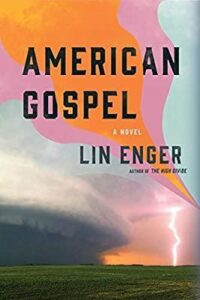 American Gospel, A Novel – Lin Enger – 978-1-5179-1054-9 – University of Minnesota Press – Hardcover – 248 pages – October 27, 2020 – $24.95 – ebook versions available for sale at lower prices
American Gospel, A Novel – Lin Enger – 978-1-5179-1054-9 – University of Minnesota Press – Hardcover – 248 pages – October 27, 2020 – $24.95 – ebook versions available for sale at lower prices
I read Lin Enger’s last novel, High Divide, a few years ago and was really taken with his writing and the mythic fictional structures he loves to tell. Storytelling is certainly humanity’s oldest art form. We use stories to explain ourselves to ourselves. Lin seems to breathe storytelling like air. His new novel is very different than his earlier books, at least that it is set more or less in modern times and in northern Minnesota, a place that Lin is completely familiar and comfortable with.
American Gospel begins in 1974 while the rest of the country is fixated on the Watergate scandal, on a north woods Minnesota farm, where Enoch Bywater, a self-styled preacher has had a vision of the Rapture. It is all so real for him, he believes that the end of the world is about to be upon us. His millennial dream is shared by his followers, and then as word spreads about the impending end of the world, his Last Days Ranch attracts a polyglot of dreamers and believers in a completely American quest for emergence.
Enoch’s son, estranged both from his father, and from Minnesota, is an aspiring reporter with his own dreams and ambitions who is attracted back home by the potential for a big story – and the possibility of reconnecting with his high school love who is now a Hollywood star, the biggest thing to ever happen to their small rural town.
And there is still more intrigue involving other characters with their own complex agendas, and the backdrop of the denouement of the Nixon saga.
Lin Enger enjoys telling stories that involve men and their fathers. And he is taken with mythological, almost Jungian figures. In this book we have father figures of all kinds – God, the president, the preacher, and even his son. The psychic wounds of America are on full display and the resonance with our current time is unmistakable.
Enger is a compassionate and perceptive writer whose prose is clean and clear. He plainly loves to shed light on who we are and what we must do in order to live together as humans in a complex, disparate modern world. American Gospel is a quietly brilliant novel that I hope will find a large audience.
Lin Enger grew up in Minnesota and now lives in Moorhead, where he teaches English at Minnesota State University. He’s won many awards for his fiction, which include the novels, The High Divide (2014) and Undiscovered Country (2008). During the 1990s Lin and his brother, the novelist Leif Enger collaborated (as L. L. Enger) on a series of mystery novels for Pocket Books.
I always enjoy speaking with Lin. We had a terrific conversation about this book, and much more for this podcast episode. I hope you enjoy it as much as I did.
Author’s website is here.
You can buy American Gospel from Bookshop.org.
Podcast: Play in new window | Download
Writerscast: David Wilk interviews Roger Angell
October 1, 2020 by David
Filed under Non-Fiction, WritersCast
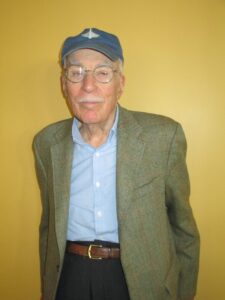 A couple years ago, in the process of researching the mostly unknown and under-appreciated New Yorker writer Robert M. Coates, I reached out to Roger Angell, who knew Coates during his many years of writing for and working at The New Yorker (and whose mother, Katharine Sergeant Angell White, and stepfather, E.B. White, knew Coates well from the earliest days of the magazine in New York and elsewhere). I wanted to learn as much as I could about Coates, and in the process, had the distinct pleasure of talking to one of the greatest writers of our time.
A couple years ago, in the process of researching the mostly unknown and under-appreciated New Yorker writer Robert M. Coates, I reached out to Roger Angell, who knew Coates during his many years of writing for and working at The New Yorker (and whose mother, Katharine Sergeant Angell White, and stepfather, E.B. White, knew Coates well from the earliest days of the magazine in New York and elsewhere). I wanted to learn as much as I could about Coates, and in the process, had the distinct pleasure of talking to one of the greatest writers of our time.
After telling me some interesting first-hand remembrances of Coates, Roger was kind enough to sit or an in-person interview with me in his apartment in New York along with his wife Peggy Moorman. It’s my honor to publish this interview now to celebrate Roger Angell’s 100th birthday. His prodigious, meticulous, and far-ranging memory is a match for his remarkable abilities as a writer.
Roger has always lived in New York City, and spent summers in Brooklin, Maine. He graduated from Pomfret School and Harvard University, served in the Air Force in World War II, first as an instructor in machine guns and power turrets, and then, in the Pacific, as an editor and reporter for the GI magazine Brief.
In 2014 Roger was inducted into the writers’ section of the Baseball Hall of Fame, and then in 2015 he was deservedly elected to the American Academy of Arts and Letters.
It is impossible to speak about and with Roger Angell without mentioning his writing about baseball, for which he is best known, including the classic books, The Summer Game and Five Seasons: A Baseball Companion, as well as a number of great shorter pieces that appeared first in the The New Yorker.
Angell’s earliest published works of short fiction and personal narratives. Several of these pieces were collected in early books, The Stone Arbor and Other Stories (1960) and A Day in the Life of Roger Angell (1970).
Roger first contributed to the The New Yorker in March 1944. He began writing about baseball in 1962, when William Shawn, then the editor of The New Yorker sent him to Florida to write about spring training and over the course of several decades produced some of the best baseball books ever written, inspiring countless readers with his brilliant descriptions of baseball games and players, and of course, fans of the game.
In a review of Once More Around the Park for the Journal of Sport History, Richard C. Crepeau wrote that “Gone for Good”, Angell’s essay on the career of Steve Blass,”may be the best piece that anyone has ever written on baseball or any other sport”.
While Angell has been praised fulsomely for his baseball writing, I’d prefer to think of him as simply one of the better literary stylists of our time. Listening to Roger Angell talk about books, writers and his writing life was one of the great pleasures of my own literary life, which I am pleased to share with you here.
Roger turned 100 on September 19, 2020. Happy Birthday Roger! And thank you and Peggy, for giving me the opportunity to speak with one of my literary heroes.
“Angell writes about baseball the way M.F.K. Fisher did about food, as a metaphor for life’s complexities of desire, defeat, utility and beauty.” — Phillip Lopate
This article in The New Yorker by David Remnick – “Roger Angell Turns 100” – is a must-read piece.
7 Must-Read Roger Angell Books: Legendary essays on baseball, reflections on aging, and so much more. Stephen Lovely, The Archive. 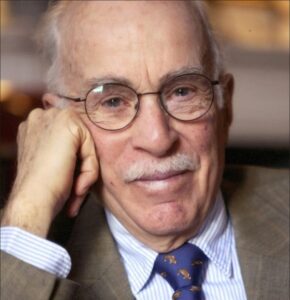
List of Roger Angell’s Books
A Day in the Life of Roger Angell
Five Seasons: A Baseball Companion
Game Time
Late Innings
Let Me Finish
This Old Man: All in Pieces
Once More Around the Park: A Baseball Reader
A Pitcher’s Story: Innings with David Cone
Season Ticket
Selected Shorts: Baseball, a Celebration of the Short Story
The Summer Game
Roger Angell Day – Celebrating Roger Angell – a 100th birthday celebration was held at the Friend Memorial Public Library in Brooklin, Maine, August 8, 2020 Photo by Bill Ray
Podcast: Play in new window | Download
Blackwood: A Novel by Michael Farris Smith
August 14, 2020 by David
Filed under Fiction, WritersCast
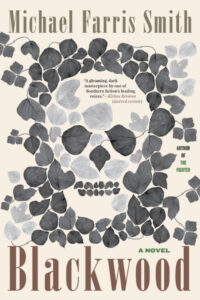 Blackwood: A Novel – Michael Farris Smith – 9780316529815 – Little Brown – Hardcover – 256 pages – March 3, 2020 – $27.00 – ebook versions for sale at lower prices
Blackwood: A Novel – Michael Farris Smith – 9780316529815 – Little Brown – Hardcover – 256 pages – March 3, 2020 – $27.00 – ebook versions for sale at lower prices
This is pretty much a stunningly written book. I discovered the writing of Michael Farris Smith serendipitously through the southern culture magazine, Garden & Gun. I read a short piece they published called “How a Steadfast Pup Helped an Author Find His Voice,” which is just a fantastic work of personal memoir. That one essay prompted me to learn about Smith and to get a copy of his latest book. Yes, this is how literary discovery works today. There are so many good writers in the world, and we are blessed with a plethora of books to read. But at the same time, how do we find out about them? I had not heard of Michael Farris Smith before. Blackwood is his fifth book, and his work has been well reviewed and praised by writers whose opinions I respect. I was surprised I had never run across his work before, and pleased I did.
I started reading Blackwood without knowing very much about this writer or his past work, or the kinds of stories he tells. There is no doubt that Blackwood can be pretty dark at times – funnily, it reminded me of the great Netflix series, Stranger Things – though much more powerful in the way that only fiction can convey mystery. It can be scary at times, and there are characters in this book who are just terrible, dangerous figures. I don’t think you have to be a southerner or to have lived in the south at all to appreciate this book, or the kinds of people who inhabit the fictional Red Bluff, Mississippi, but it helps, I am sure, as the landscape and the mysteries Smith explores are very much “of the South” and the pain and suffering that resides in its countryside. That suffering is an integral element of the history of the people and the land that is palpable in this novel. The collection of characters is interestingly diverse, combining a bit of Faulkner with a touch of Stephen King, it seems.
I tend to think of this book as a novel of magical realism that taps into a mysterious darkness that inhabits the land itself. It is chthonic – almost literally. There is a part of this novel that is mythic, subliminal, deeply psychic in a wounded way, and the people who live in this strange place have become part of the mystery and part of the land as well. I wondered at times if Smith is telling a story that even he may not fully understand, almost like a Druid priest channeling voices from another reality. The book is very powerful, and that power makes it difficult sometimes to get your bearings, as a reader, you can feel outside the realm of your own experience enough that you must allow Smith’s language to transport you to this other place, and dream alongside and almost within the author’s psyche.
Some of the words used by reviewers come to mind – “brutal,” “supernatural,” “startling,”. All are accurate. I felt the pain of this novel deeply. And yes, it is a southern novel, but that should not ever be considered a limitation. This is just a great novel that happens to be set in the south.
I am really pleased that I discovered Blackwood and the work of this compelling writer, Michael Farris Smith. I’d like to especially thank the magazine Garden & Gun for doing what they do so well — exploring and expounding on modern southern culture. And thanks to Michael Farris Smith for taking the risk to write this difficult book, and for talking to me about it. We had a great conversation together.
“Lurking over Blackwood is a family of itinerant grifters—a version of Faulkner’s Snopes clan, forces of chaos, human kudzu except for the youngest of them, a mysterious boy in whom Colburn sees his young self. As in the best noir, A soul-strangling inevitability hangs over Red Bluff, yet somehow Smith gives his doomed characters a dignity in the face of forces well beyond their control.” Booklist (starred review)
Michael Farris Smith website.
Buy the book at RJ Julia Booksellers.
Podcast: Play in new window | Download
Fenton Johnson – At the Center of All Beauty: Solitude and the Creative Life
June 14, 2020 by David
Filed under Non-Fiction, WritersCast
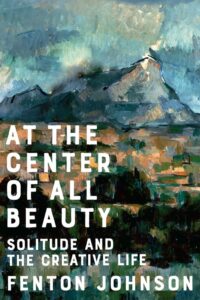 At the Center of All Beauty: Solitude and the Creative Life – Fenton Johnson- 9780393608298 – W.W. Norton – Hardcover – 256 pages – March 10, 2020 – $26.95 – ebook versions available at lower prices
At the Center of All Beauty: Solitude and the Creative Life – Fenton Johnson- 9780393608298 – W.W. Norton – Hardcover – 256 pages – March 10, 2020 – $26.95 – ebook versions available at lower prices
So much of the pleasure of conducting this podcast for all these years has been (and continues to be) the discovery of new writers and books, that so deeply nurture my inner being. Discovering Fenton Johnson’s writing during the pandemic, where I have been spending most of my time alone or with just my immediate family, has been both apt and especially rewarding. I want to thank my cousin, Fred Hertz, for introducing me to Fenton and his work. I am especially interested in this book, as it is about the inner lives if writers, artists and musicians, their thought processes and creative lives, Fenton Johnson’s perspective on creativity and the artistic journey should resonate with us now more than ever.
Fenton is an outstanding writer, whose prose flows like a slow moving brook through the woods. I am really surprised not to have known about his work before now. Now, having read this most recent very personal memoir, I am adding his other works of memoir, and his fiction to my long term reading list.
But back to this book. In At the Center of All Beauty, Fenton explores the lives and works of nearly a dozen writers, painters and singers, those he feels most close to in his own life and work. He calls them “solitaries,” and links them to members of his own family, friends he knew growing up, his life, his lovers, his loves. He rightly questions the dominant cultural narrative we all absorb that coupling is the highest and best way to live. Of course there is a long and celebrated tradition in the West of creatives who must separate themselves from others in order to be themselves, and this clearly is a crucial story for anyone involved in trying to create.
Fenton devotes chapters to Thoreau at Walden Pond, Emily Dickinson in Amherst, the great Bill Cunningham photographing in the streets, Cézanne repeatedly painting Mont Sainte-Victoire and Zora Neale Hurston, Nina Simone, and several other exemplars of the creative solitary life. Each of these stories relate back to Fenton’s own journey, first growing up in Kentucky near the famous Gethsemane monastery (best known as home to Thomas Merton,) his father and mother, also both solitary souls despite their family lives, and then later living in San Francisco in the time of AIDS, to now, where in late middle age, he finds himself solitary and at peace with all that it means to be both alone and completely connected to the world around him.
This book is full of wisdom, of beauty, and of language that helps us go beyond our daily perceptions into our own stories of self and meaning. You can read this book as a narrative or perhaps as well, use it as an inspirational spur to personal meditation on self and beauty.
It was truly a pleasure to read At the Center of All Beauty and also to have the opportunity to speak with Fenton about this book. To illustrate life during Covid-19, while we happened to both be in Tucson, Arizona this spring, Fenton delivered the book to me, both of us wearing masks, in the local post office parking lot, and we conducted the interview via Skype, despite being less than two miles apart from each other on the day we talked.
Aside from At the Center of All Beauty: Solitude and the Creative Life, Fenton Johnson is the author of three novels: The Man Who Loved Birds, Scissors, Paper, Rock, and Crossing the River, each of which have been reissued in new editions. He has also published two previous memoirs, Geography of the Heart: A Memoir and Keeping Faith: A Skeptic’s Journey among Christian and Buddhist Monks and an essay collection Everywhere Home: A Life in Essays.
Geography of the Heart received the American Library Association and Lambda Literary Awards for best LGBT Creative Nonfiction, and Keeping Faith received a Lambda Literary and Kentucky Literary Award in Creative Nonfiction. He was recently featured on NPR’s Fresh Air and writes for Harper’s Magazine.
Fenton is professor emeritus at the University of Arizona and teaches creative writing workshops nationally. He is on the faculty of the low-residency creative writing program of Spalding University.
Support local booksellers! Buy At the Center of All Beauty from independent bookseller RJ Julia.
Podcast: Play in new window | Download
Adina Hoffman: Ben Hecht: Fighting Words, Moving Pictures
June 30, 2019 by David
Filed under Non-Fiction, WritersCast
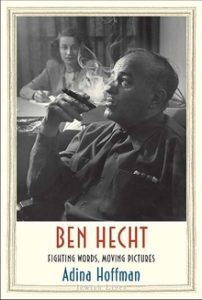 Ben Hecht: Fighting Words, Moving Pictures – Adina Hoffman – 9780300180428 – Yale University Press – Hardcover – 264 pages – $26 – February 12, 2019 – ebook versions available at lower prices
Ben Hecht: Fighting Words, Moving Pictures – Adina Hoffman – 9780300180428 – Yale University Press – Hardcover – 264 pages – $26 – February 12, 2019 – ebook versions available at lower prices
I grew up in a family where the movie business was in our blood, and part of the conversations of everyday life, so I have long known about – and appreciated – the amazing screen writing of Ben Hecht. Hecht’s many screenplays in many ways established and defined what is now standard movie practice. He wrote some of the greatest and most watched films in history, and made a well paid career out of “doctoring” other writers’ scripts. Hollywood was his reluctant artistic base for many years, though he would never be completely comfortable there.
Reading this very comprehensive, but highly readable biography by Adina Hoffman, brought Hecht’s life and work into focus for me for the first time. Hecht’s story was that of a classic 20th century second generation Jewish immigrant. He was raised in Wisconsin, made his way to Chicago, became a newspaper writer and then a novelist in the glory years after World War I, where he helped create and define the literary scene in that great city, before moving to New York, where he truly established himself as literary star.
Hecht and Charles MacArthur together wrote the now-classic play, The Front Page, becoming writing partners and pals for many years thereafter. Some of Hecht’s most famous screenplays include Scarface, Gone with the Wind, Stagecoach, Notorious and His Girl Friday. Hecht worked on literally hundreds of films, was a powerful enough writer to be able to be given the opportunity to produce four films with MacArthur (a mis-adventure described wonderfully by Hoffman). Hecht worked with some of the greatest directors, producers and actors in 20th century film. His work literally defined what a Hollywood movie could be, and much of what we think about 20th century American culture is derived from his cynical, yet optimistic worldview.
Hecht’s many novels and nonfiction books are not widely read or known today, and according to Hoffman, who has read them all, some are lost to literary history for good reason. Still, it is quite possible that this fully formed biography with its clear eyed evaluation of Hecht as passionate human, brilliant intellect and outstanding writer, will help their cause. For myself, I have made a commitment to read at least one or two of the books that Hoffman tells us are important enough to seek out, including at least one novel. I have thought about reading Hecht’s very early novel Fantazius Mallare: A Mysterious Oath, even though Hoffman pretty much dismisses it, except for one great sentence that is said to have inspired Ginsberg’s Howl. But it is his autobiography, A Child of the Century that calls out to me the most, and that I will be reading soon.
Though he was decidedly a non-secular Jew during World War II, Hecht rediscovered his Jewish identity and became a powerful public voice pressuring American politicians to save the Jews of Europe. After the war, Hecht’s Zionism led him to support the nascent Jewish state of Israel with the burning fervor of a convert, his trademark enthusiasm focused on building a safe haven for Jews, which ironically, he never visited. Hecht, as Hoffman shows us, was a complicated human being – and frequently an unforgivable one as well.
Ben Hecht was emblematic as the “child of the [20th] century” who helped to define modern Jewish America and modern popular culture. Adina Hoffman is a terrific writer and a gifted storyteller, perfectly suited to tell this story. Thanks to Yale University Press for creating an absolutely beautiful book, one that serves her writing well, and makes reading it a better experience.
Adina Hoffman is an essayist and biographer who splits her time between New Haven and Jerusalem. Fortunately, she was in New Haven when I wanted to talk to her about this book and the work that went into it. Hoffman is the author of four books, including Till We Have Built Jerusalem: Architects of a New City and My Happiness Bears No Relation to Happiness: A Poet’s Life in the Palestinian Century. She was a film critic for the American Prospect and the Jerusalem Post, and was a founder and editor of Ibis Editions, a small press devoted to the publication of the literature of the Levant. She has been a visiting professor at Wesleyan University, Middlebury College, and NYU, and was notably one of the inaugural (2013) winners of the Windham Campbell prize. Read more about Adina and Ibis Editions here.
And you can find a good bibliographical of Hecht’s work here.
Note to listeners, this interview was recording live in a room with a bit of echo, so apologies to all for the sound quality.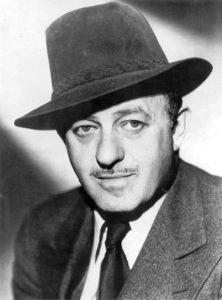

Podcast: Play in new window | Download
Gregory McNamee: Tortillas, Tiswin & T-Bones: A Food History of the Southwest
September 23, 2018 by David
Filed under Non-Fiction, WritersCast
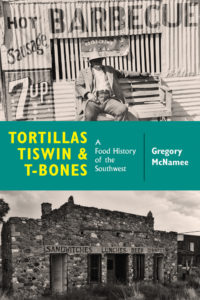 Tortillas, Tiswin & T-Bones: A Food History of the Southwest – Gregory McNamee – University of New Mexico Press – 256 pages – paperback – 9780826359049 – $24.95 – October 30, 2017 – ebook versions available.
Tortillas, Tiswin & T-Bones: A Food History of the Southwest – Gregory McNamee – University of New Mexico Press – 256 pages – paperback – 9780826359049 – $24.95 – October 30, 2017 – ebook versions available.
According to the publisher, this book is an “entertaining history [of] the many ethnic and cultural traditions that have contributed to the food of the Southwest.” And while I do agree that the book’s style makes it a relatively compelling and easy book to read, I think its author, Greg McNamee, is trying to do much more than entertain. McNamee uses food and cooking as a lens to understanding culture, yes, but also to pinpointing the issues that face us in America as we try to grapple with climate change, to live reasonably and sustainably on the earth, and to work together with our fellow humans. There is no heavy handedness to his approach, but he never lets us forget the driving themes of his work, and his perspective.
McNamee starts off by going back to the earliest periods when humans arrived in the Americas, and takes us through the beginning of agriculture in Mesoamerica, and the ancient trade networks that evolved to connect peoples of the coasts, plains, and mountains. From there, he takes us through the various areas that comprise the loosely labelled southwestern region of America, up through the present day’s fusion of cultures and foodways from so many different areas that defines this cuisine now.
Covering just about everything edible in human cultures in what we consider to be the southwest region (which he defines a bit more broadly than most), from chili pepper and agave, to modern day cuisines that include Frito pie and other cross cultural inventions, McNamee traces a culinary journey through varieties of space and time, to get us where we are today and significantly, what the southwest and its food and people might look like in our emerging future.
Tortillas, Tiswin & T-Bones is indeed, a masterful work of accessible anthropology that was recognized as one of the 2017 Southwest Books of the Year. Since I love the southwest and its food, reading this book was a great pleasure for me.
Greg McNamee is a writer, journalist, editor, photographer, and publisher. He is the author or editor of forty books and more than five thousand periodical contributions. He operates Sonora Wordworks, an editorial and publishing service, and is also the publisher of Polytropos Press.
McNamee is a research associate at the Southwest Center of the University of Arizona, and a lecturer in U of A’s Economics Department of the Eller College of Management. Additionally, he teaches courses and gives talks on writing, publishing, journalism, media and technology, as well as cultural and environmental issues. He lives in southern Arizona. Learn more about him and his work at his website.
It was a pleasure for me to get to speak with Greg, who is a great storyteller and conversationalist, and a I only wish we had been able to speak in person, and for a much longer period of time. And I was very pleased to learn how to pronounce “tiswin” too.
This book feels like sitting down to a dinner with Diana Kennedy and Jim Harrison, tequila in hand and great conversation going long into the night. It’s alive, a love story, a timeless journey. I absolutely loved reading it and will treasure Gregory McNamee’s words for a long time to come.
— Tracey Ryder, cofounder of Edible Communities and coauthor of Edible: A Celebration of Local Foods
Tortillas, Tiswin, and T-Bones sends the reader on a riveting adventure, tracking the origins of Southwestern ingredients and culture to reveal American history through food. McNamee’s prose is deft and authoritative, and this is a highly original, timely book.
—Kate Christensen, author of Blue Plate Special and How to Cook a Moose
Podcast: Play in new window | Download
Mark Chiusano: Marine Park (Stories)
October 12, 2014 by David
Filed under Fiction, WritersCast
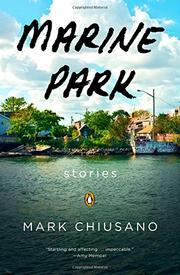 Marine Park: Stories – 978-0143124603 – paperback original – Penguin Books – $15.00 – ebook versions available at lower prices
Marine Park: Stories – 978-0143124603 – paperback original – Penguin Books – $15.00 – ebook versions available at lower prices
Mark Chiusano grew up in Marine Park, perhaps the most isolated and least well known neighborhood of the now hip New York borough of Brooklyn. He spent some of his summers playing baseball in Switzerland.
He went to Harvard University, where he was the recipient of a Hoopes Prize for outstanding undergraduate fiction. Mark is still young – mid-twenties – but has been a prolific writer of short stories since college, some of which have appeared in literary magazines, including Guernica, Narrative, Harvard Review, and online at Tin House and The Paris Review Daily.
This first book is a collection of stories called Marine Park, after his boyhood neighborhood. It’s a diverse collection, but linked by tone, perspective, and some recurring characters. Stories revolve around kids growing up in the tight-knit neighborhood, portraits of its denizens, adventures and misadventures. Eight of the stories, perhaps the core of the book, revolve around the brothers Jamison and Lorris, as they grow up from late childhood into adults in the almost present. Overall, these are really well written stories, any one of which can stand alone, but collected, create a cohesive outlook and impact on the reader. There’s a palpable love and joy that shines through the narratives without ever falling prey to sentimentalism.
This is clearly a first book, with some stories seeming to experiment with different manners and tropes, as the author is feeling his way toward his authentic voice. But Chiusano is such a fine stylist, we tend to forgive any missteps or methodological repetitions. He is an original voice in many ways and we can expect more great writing from him as his work continues to grow.
Chiusano is now an editor at Vintage Books and is working on his next book.I’m guessing that his work, where he must spend time reading and editing other writers’ work will help make him even better than he already is. I’m looking forward to reading more from this fine new writer. I think you will find our conversation both interesting and revealing of how a wonderfully creative writer thinks about the work.
This interview was recorded at John Marshall Media, New York City in summer 2014.
Author website – where you can find a great quote about the book: “Here’s the spirit of dear Sherwood Anderson in Mark Chiusano’s Marine Park.”—Ron Carlson
Podcast: Play in new window | Download

